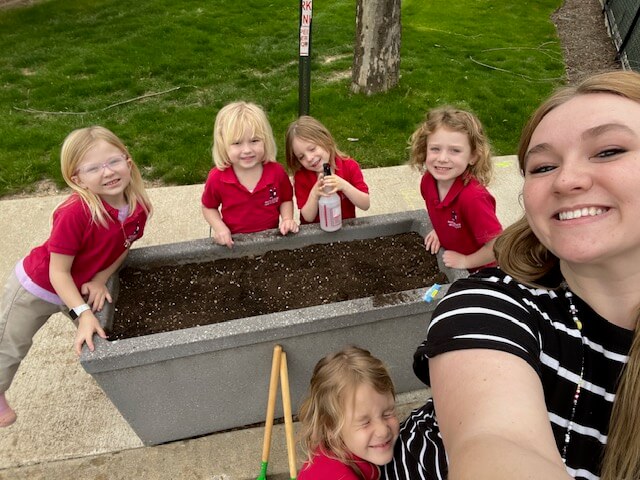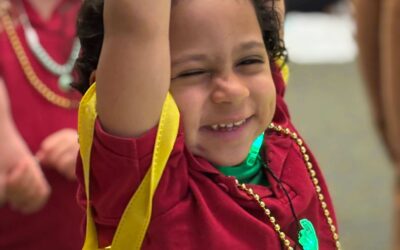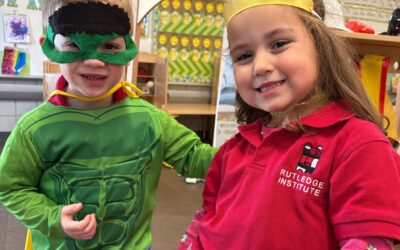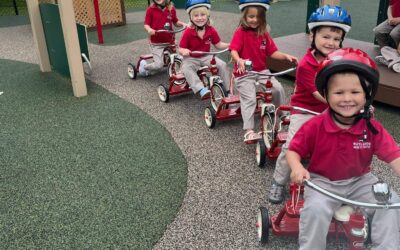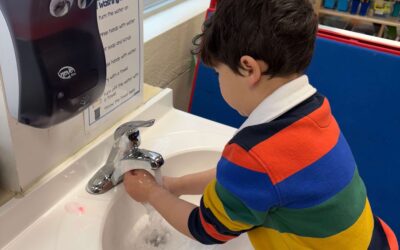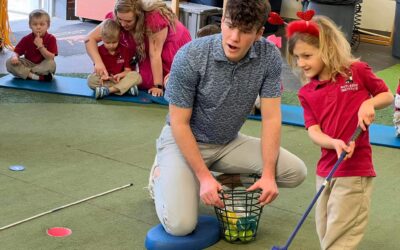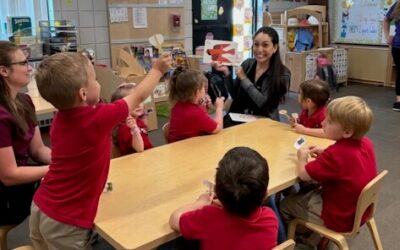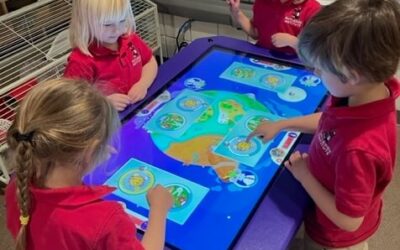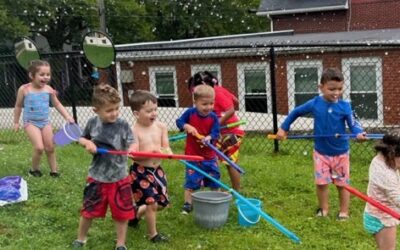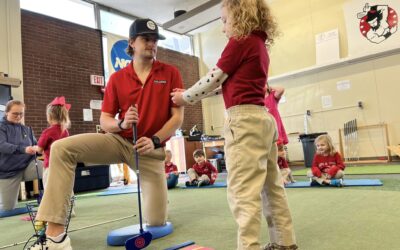Children learn and retain lessons when they hear information repeatedly and experience the satisfaction of knowing how to do new things. They learn other life skills the same way, but it takes a lot more practice to master them.
Our teachers develop different lesson plans for every day. When they present those lessons, they connect like puzzle pieces to form a longer-term theme. For example, a teacher might start talking about rocks by exploring the general topic. The next lesson might be an investigation to collect some rocks and talk about how they are the same or different. The next lesson might involve a discussion of the ways we use rocks and some of the challenges of using them. The topic might be wrapped up with fun activities to see if rocks float in water, if they can be painted, etc. Throughout the lessons, the teacher and children talk about colors, numbers, and shapes and they read and spell. If a child is absent for a week or several days every week or the morning teaching sessions during the monthlong rocks topic, they miss some opportunities to learn and to do some fun activities too. Their progress toward learning life skills is also interrupted when they don’t attend.
The Penn State Extension Better Kid Care says there are 6 critical life skills for children. The skills are learned and reinforced in peer groups, and teachers play a critical role in developing these life skills. Lessons tell the children about life skills, and their teachers reinforce life skills by serving as coaches, mediators, and navigators. Most children don’t have opportunities to learn and practice their life skills at home, so early childhood educators are critical to children’s social and emotional development.
Early childhood education encourages each child to learn at their own pace, strive to do their personal best, and belong to a group of peer friends in a community of learners. Each child contributes to the community, navigates their way through various social situations, and helps others in the community. Teachers manage the diverse community so everyone can learn academics, develop their life skills, and succeed when they move to kindergarten and beyond.
Of course, children should not come to school when they are ill. They shouldn’t miss important family events or vacations. Families should keep these guidelines in mind:
-
Enroll for as many days per week as possible.
-
Make the effort to attend – don’t think of it as a playdate.
-
Arrive at school before 9:00 AM.
-
Cooperate when the teacher asks the children to do an assignment at home.
